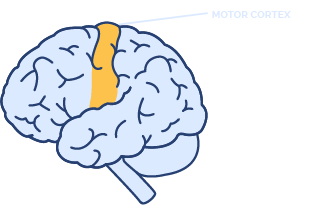Spasticity
Most children who have Cerebral Palsy have a spastic form. In fact, upwards of 9 in 10 cases of Cerebral Palsy involve spasticity. Spastic Cerebral Palsy is an overarching classification that encompasses the vast majority of subtypes of Cerebral Palsy. This includes spastic quadriplegia, spastic diplegia, spastic hemiplegia, spastic quadriparesis, spastic diparesis and spastic hemiparesis.
The chief characteristics of all forms of spastic Cerebral Palsy include muscular hypertonia (abnormal tightness in muscles), which often causes jerky movements, joint deformities, motion restriction and tremors.
- High muscle tone (hypertonia) affecting the legs and/or the arms on one or both sides of the body
- Skeletal deformities caused by muscular contraction
- Limitations on mobility
- Joint stiffness and contraction
- Exaggerated movements
- Unusual gait
- Walking on the tips of the toes
- Crossed knees
- Impaired reflexes
- Tremors
- Hearing impairments
- Speech impairments
- Vision impairments
- Seizures
Children with spastic Cerebral Palsy do not always exhibit all of the symptoms listed here. There may also be other effects of the condition that are not included on the list above.
 Damage to the brain or abnormal brain development is at the root of spastic CP. Abnormalities in the motor cortex and the brain’s pyramidal tracts cause most cases of spasticity in Cerebral Palsy patients.
Damage to the brain or abnormal brain development is at the root of spastic CP. Abnormalities in the motor cortex and the brain’s pyramidal tracts cause most cases of spasticity in Cerebral Palsy patients.The motor cortex is a portion of the cerebral cortex. The motor cortex acts as a switchboard for distributing signals about muscle movement throughout other parts of the brain. The motor cortex plays a critical role in controlling voluntary movement.
The pyramidal tracts are a brain structure that connects the motor cortex to the spinal cord. They serve as the pathway for messages to travel between the motor cortex and the rest of the body.
Causes of damage to the motor cortex and pyramidal tracts resulting in spastic CP may include:
- Insufficient oxygen during labor and delivery
- Infections before or after birth
- Bleeding in the brain while in utero
- Trauma to the brain before, during or immediately after birth
Because there is currently no known way to reverse the brain abnormalities that cause CP, treatments for spastic Cerebral Palsy focus on reducing and managing the symptoms of the condition. Some treatments that may be beneficial include:
 Physical therapy, particularly exercises aimed at reducing muscle and joint stiffness and increasing flexibility
Physical therapy, particularly exercises aimed at reducing muscle and joint stiffness and increasing flexibility Occupational therapy, with a focus on improving muscle control and coordination
Occupational therapy, with a focus on improving muscle control and coordination Speech therapy
Speech therapy Medication to relieve muscle stiffness, including the administration of benzodiazepines and antispasmodic medications such as Botox and baclofen
Medication to relieve muscle stiffness, including the administration of benzodiazepines and antispasmodic medications such as Botox and baclofen Medication to relax muscles, such as Valium
Medication to relax muscles, such as Valium Anti-seizure medication
Anti-seizure medication Brain surgery to sever nerves that cause spasticity
Brain surgery to sever nerves that cause spasticity Surgery to address joint problems and skeletal abnormalities
Surgery to address joint problems and skeletal abnormalities- Extrapyramidal or non-spastic Cerebral Palsy
- Dyskinetic Cerebral Palsy
- Dystonic Cerebral Palsy
- Chorea
- Choreoathetoid
- Dystonia
- Unilateral Cerebral Palsy
- Ataxic Cerebral Palsy
- Mixed Cerebral Palsy
- Athetoid Cerebral Palsy (Dyskinetic Cerebral Palsy)
MyChild™ offers free case evaluations and answers to your questions about your child’s spastic CP. Fill out our online contact form now for confidential and caring assistance.







